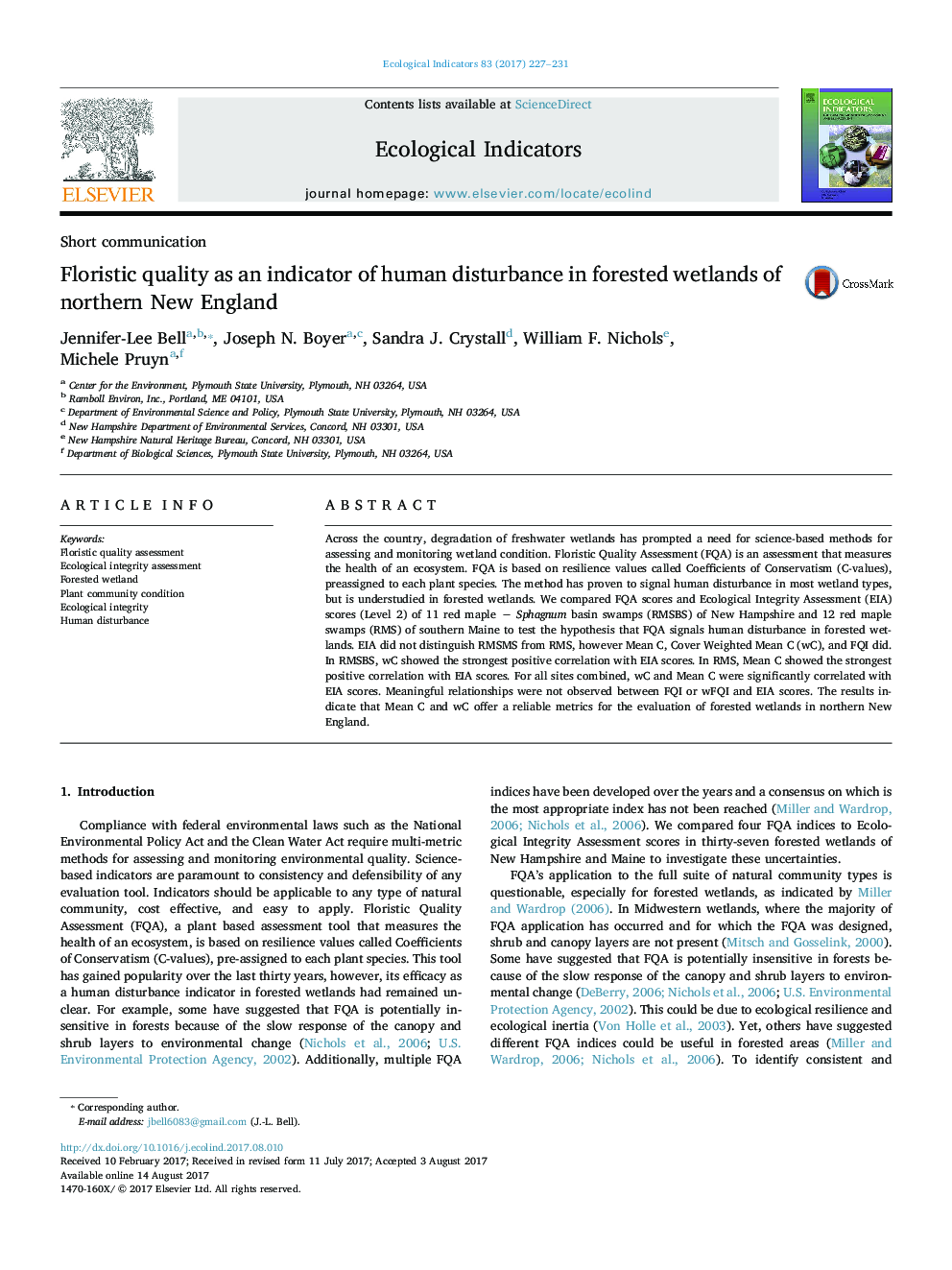| Article ID | Journal | Published Year | Pages | File Type |
|---|---|---|---|---|
| 5741493 | Ecological Indicators | 2017 | 5 Pages |
Abstract
Across the country, degradation of freshwater wetlands has prompted a need for science-based methods for assessing and monitoring wetland condition. Floristic Quality Assessment (FQA) is an assessment that measures the health of an ecosystem. FQA is based on resilience values called Coefficients of Conservatism (C-values), preassigned to each plant species. The method has proven to signal human disturbance in most wetland types, but is understudied in forested wetlands. We compared FQA scores and Ecological Integrity Assessment (EIA) scores (Level 2) of 11 red maple â Sphagnum basin swamps (RMSBS) of New Hampshire and 12 red maple swamps (RMS) of southern Maine to test the hypothesis that FQA signals human disturbance in forested wetlands. EIA did not distinguish RMSMS from RMS, however Mean C, Cover Weighted Mean C (wC), and FQI did. In RMSBS, wC showed the strongest positive correlation with EIA scores. In RMS, Mean C showed the strongest positive correlation with EIA scores. For all sites combined, wC and Mean C were significantly correlated with EIA scores. Meaningful relationships were not observed between FQI or wFQI and EIA scores. The results indicate that Mean C and wC offer a reliable metrics for the evaluation of forested wetlands in northern New England.
Related Topics
Life Sciences
Agricultural and Biological Sciences
Ecology, Evolution, Behavior and Systematics
Authors
Jennifer-Lee Bell, Joseph N. Boyer, Sandra J. Crystall, William F. Nichols, Michele Pruyn,
